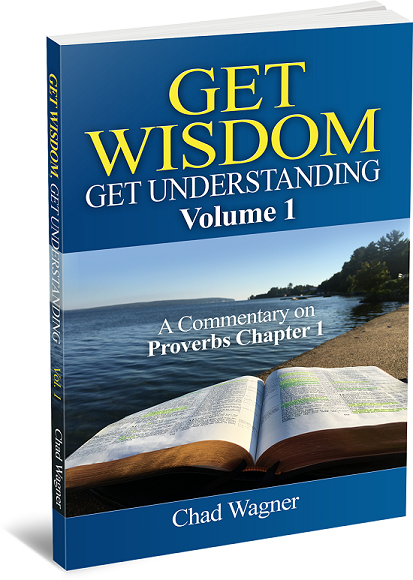Subscribe to Pastor Wagner's Blog
Blog - Proverbs 1:10

Having exhorted his son of the importance and benefits of getting wisdom for the first nine verses, Solomon begins a warning to his son of potential danger that lies ahead. Children are born into this world with a depraved heart, as the Lord declared after the flood, "the imagination of man's heart is evil from his youth" (Gen 8:21). If it wasn't bad enough that children have a carnal nature within them, constantly contradicting the scriptural precepts that godly parents labor to instill in them, in addition to this, they have ungodly friends who try to entice (to stir up, incite, instigate (to a course of action); also to provoke - OED) them to do evil. Raising children on an uninhabited island would be a far easier task for parents, but virtually none are afforded that opportunity which itself would pose plenty of problems. Peer pressure is a powerful influence for children and adults alike which is why God warned Israel, saying, "thou shalt not follow a multitude to do evil" (Exo 23:2). King Saul fell into this snare when he listened to the people and spared king Agag and the best of the animals (1Sa 15:9,20-21) that were supposed to be destroyed along with all the Amalekites, as the Lord had commanded (1Sa 15:3). Men have a tendency to adopt "herd mentality" and follow the crowd, even when they have no idea where it is headed. This happened with the two hundred men who followed Absalom in his rebellion against David who "went in their simplicity, and they knew not any thing" (2Sa 15:11). This type of "group think" was responsible for the uprising in Ephesus when Demetrius the silversmith riled up the crowd against Paul and his companions under the guise of a concern for his goddess Diana, but, in truth, out of fear for his wallet (Act 19:23-31). Once a group of bystanders was stirred up by the agitator, they drew a multitude into the mix that didn't even know why they were there; and getting themselves into a frenzy, "some therefore cried one thing, and some another: for the assembly was confused; and the more part knew not wherefore they were come together" (Act 19:32). Patriots should take note: there is usually a presented reason for a political uprising, and then there is the real reason. Christians should be very cautious in getting involved in such demonstrations because it might just be that sinners have enticed them to action only to be used for their own nefarious purposes. Never forget Solomon's warning: "a violent man enticeth his neighbour, and leadeth him into the way that is not good" (Pro 16:29). Solomon's warning to his son should teach us another valuable lesson: we don't have to, nor should we, consent to enticement. To consent is to "harmonize or make to accord; to meet harmoniously" (OED). The scripture teaches that "every man is tempted, when he is drawn away of his own lust, and enticed" (Jam 1:14); but the enticement is not itself sin, nor is it irresistible. To keep lust from conceiving, which brings forth sin, and finally death (Jam 1:15), which is the ultimate result when a fool consents to do evil with sinners (Pro 1:18), we must "have no fellowship with the unfruitful works of darkness (consent not), but rather reprove them" (Eph 5:11). Heed the wise words of Solomon, and "do not err, my beloved brethren" (Jam 1:16).
